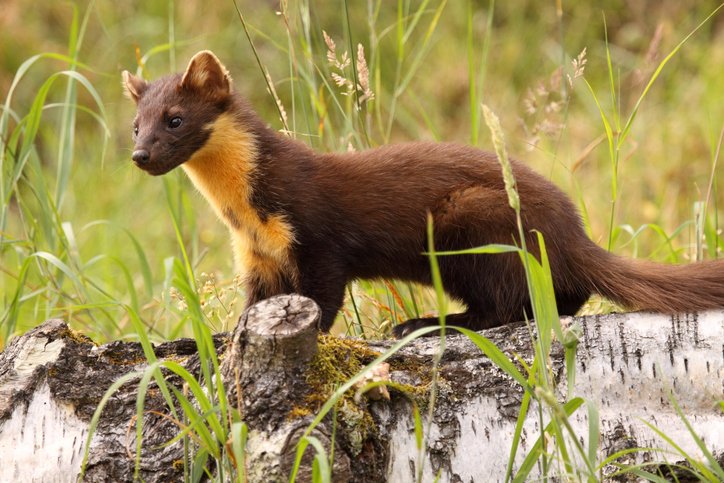Almost 100 threatened species in England have seen their prospects of survival improved after five years of concerted emergency work by nearly 100 organisations funded by the National Lottery Heritage Fund.
The £7m Back from the Brink (BftB) programme has brought together a game-changing partnership of organisations to turn the tide for some of England’s most threatened species, and to inspire the nation to connect with and care for our vulnerable wildlife.
The prospects for targeted populations of our threatened species have been improved thanks to the practical actions carried out to support them, with more people knowing about and acting for them, and more effective collaborative working by conservation bodies on species recovery.
More species at risk
96 priority species have made recovery progress to improve their conservation status and prospects as a result of the project, which has contributed to 561 nationally identified priority actions benefiting a total of 188 species.
19 species conservation projects were spread across the breadth of England – from Lands’ End to the Scottish Borders – on around 600 sites, located in places as diverse as the Dorset heaths, North Downs, Cotswolds, Breckland, Rockingham Forest, Dearne Valley, Sefton Coast and the Yorkshire Wolds.
The organisations warn, however, that full species recovery takes much longer than five years, and improving the prospects of the species targeted is only the vital first stage – there are still further populations to address, and many more species also at risk.
‘The BftB programme has been an incredible mission to improve the conservation prospects of some of England’s most threatened species, supported by one hundred organisations, engaging with almost one thousand land owners and managers, and involving thousands more members of the public through our work to inspire a nation. Following such successful efforts over the last five years, we are passing on a legacy of recovering species and engaged people that are committed to their continued conservation.’
RICH HOWORTH
BftB programme manager
Single-species projects
In addition to a suite of seven multi-species integrated projects, a number of projects focused on the following single species:
BARBERRY CARPET MOTH
Butterfly Conservation has strengthened the remaining populations in Wiltshire, Gloucestershire and Dorset by planting over 4,000 barberry plants across 166 sites between and around the colonies to strengthen and link them up, enabling populations to increase and expand over time.
BLACK-TAILED GODWIT
The RSPB and the Wildfowl and Wetlands Trust increased the population of this charismatic threatened bird from 38 to 53 pairs at the Nene Washes and Ouse Washes.
155 captive-reared birds were released and eight wetland scrapes created, protected by 7km of new anti-predator fencing.
CORNISH PATH MOSS
Plantlife sought to conserve this very rare species, found only on three former metal mine sites worldwide, by carrying out surveys and creating over 500m2 of suitable habitat under a new management protocol, and linked up with local bodies to sustain it in the future.
FIELD CRICKET
RSPB increased the resilience of this rare insect in Sussex and Surrey by releasing crickets on to 10 ha of restored heathland at Pulborough Brooks to create a stepping-stone between two existing populations, and by boosting the isolated population at Farnham Heath through translocations.
 Play Video about This Rock Might Just Save The World
Play Video about This Rock Might Just Save The World Play Video about Play 2 hours of rock
Play Video about Play 2 hours of rock Play Video about Play 2 hours of brook
Play Video about Play 2 hours of brook Play Video about Play 2 hours of sheep
Play Video about Play 2 hours of sheep











































